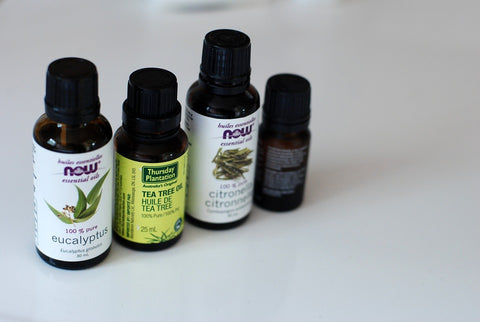The essential oil deriving from the tea tree plant is known and appreciated primarily because of its antiseptic and antifungal properties. The plant originates from Australia, where its healing properties have been discovered by Aborigines – continent's natives. They used teacups to scratch the leaves and turn them into a mass that would wrap the wounds of injury, bite and insect bites. Other than being known to Aborigines since ancient times, potent medicinal properties of tea tree are also supported by scientific evidence. It has a wide range of applications, and there are numerous ways to consume it. Here are some detailed facts about the beneficial properties of tea tree oils.

Antiseptic properties
Before the discovery of antibiotics, tea tree oil was known as one of the main antiseptics at the time. In 1923, a chemist named Arthur Penfold published his discovery in the British Medical Journal, where he discovered that tea tree's antiseptic characteristics are 11 times stronger than in carbo-laic acid (the main antiseptic at the time), and that it does no damage to the skin, unlike the mentioned acid. Tea tree was so famous that during World War II every Austrian soldier had to have a bottle of tea tree oil for treating potential wounds.

Antifungal properties
Tea tree oil is one of the most treasured natural medicines - it has been celebrated for its effectiveness in combating various infections. Its application has shown significant improvements with toenail fungus issues, gum disease, athlete foot, and vaginal infections. In a conducted study, 80 percent of people that applied tea tree oil to heal fungal conditions were cured. Before applying it you should first check with your dermatologist if tea tree oil is safe for you. If it is and you're safe to start with this natural medication against fungus, be ready to be patient for a few weeks until the results show up.
Antimicrobial properties
Tea tree oil is famous for its antimicrobial and anti-inflammatory properties which are great solutions for dealing with skin conditions such as acne. Some studies have shown that tea tree oil is as capable of treating acne problems as is benzoyl peroxide, a famous ingredient in skincare treatments.

Fighting dandruff
Given that tea tree oil is a natural moisturizer with antibacterial and antifungal properties, it can be highly efficient in fighting extremely annoying problem such as dandruff. Symptoms such as itchy, dry scalp and white dead skin flakes can be alleviated rather easily. You can either take your favorite shampoo and add 5-10 drops of tea tree essential oil into it, or you can buy premade tea tree oil shampoo.
Treating athlete’s foot
Athlete’s foot is a common fungal infection of the feet and toes. Thanks to its antifungal properties, tea tree oil is often used in treating this persistent and tough condition. Rubbing the oil on the feet is often as effective as the pharmaceutical treatments for this infection. It can reduce all of the annoying symptoms such as itching, burning, and swelling of the foot.
Nessie L.B.

